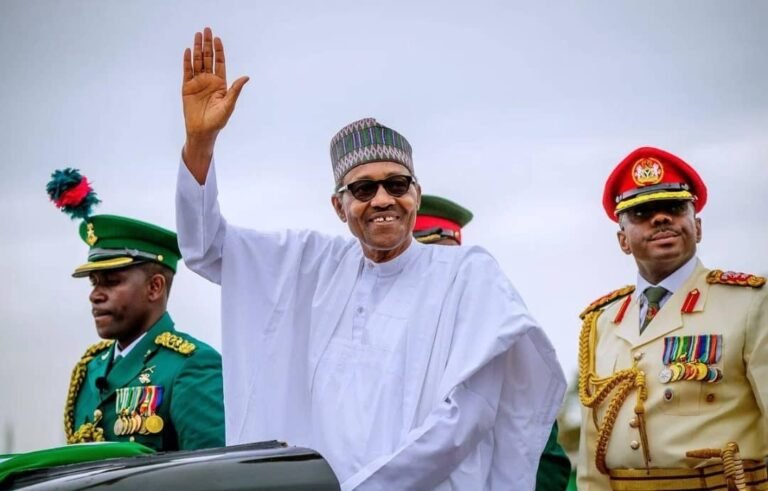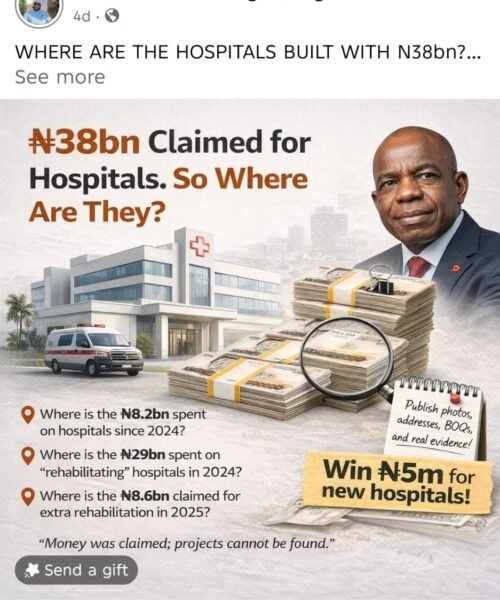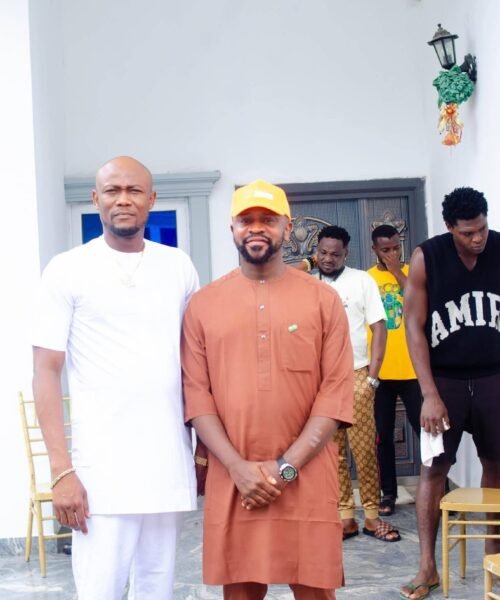MISGUIDED CELEBRATIONS AND MISINFORMATION: REFLECTING ON BUHARI’S LEGACY AND THE IGBO NARRATIVE
By Chukwuemerie Uduchukwu
The celebration of former President Muhammadu Buhari’s death by some Nigerians, particularly among the Igbo community, is not only disheartening but also a troubling reflection of a deeper malaise in the social and political fabric of the nation. The spread of baseless conspiracy theories, such as the claim that Buhari died in 2017 and was replaced by a “Jubril of Sudan,” reveals a disturbing trend of misinformation that seems to find particular traction among certain Igbo groups. This narrative, propagated largely by individuals from the Southeast, speaks volumes about the prevalence of what can only be described as educated illiteracy: a phenomenon where individuals, despite formal education, embrace and disseminate unfounded theories that defy logic and evidence. The persistence of such claims, even after Buhari’s death on July 13, 2025, in London at the age of 82, underscores a troubling willingness to cling to divisive and baseless narratives that do more harm than good to Nigeria’s unity. This behaviour is not just an isolated act of folly; it is a significant factor contributing to the deep-seated mistrust that other regions, particularly the North, harbour toward the Igbo when it comes to entrusting them with presidential power. The propagation of such conspiracies, often laced with ethnic prejudice, paints the Igbo as a group prone to irrationality and divisive rhetoric. These claims, dismissed as fake news by reputable sources like the BBC and AFP Fact Check, were fuelled by ethnic biases and a lack of critical thinking, with some posts falsely alleging physical differences in Buhari’s appearance or even citing a scene from the 1997 film ‘Face/Off’ to support the absurd notion of a body double. Such actions do not merely undermine the credibility of those who spread them; they also reinforce stereotypes that portray ndị Igbo as untrustworthy or overly emotional, making it harder for the region to produce a president in a nation where political trust is already fragile. The irony is stark when one considers the tangible contributions of Buhari’s administration to the Southeast, a region often critical of his leadership.
Contrary to the narrative pushed by some Igbo detractors, Buhari’s government executed significant infrastructure projects in the Southeast that surpassed the efforts of Goodluck Jonathan, a leader often favoured by many in the region. For example, Buhari’s administration prioritized and advanced the Second Niger Bridge, a critical infrastructure project that had languished under previous governments, including Jonathan’s. This bridge, connecting Anambra and Delta states, is a lifeline for economic activity in the Southeast, yet it was Buhari’s government that brought it closer to completion. Additionally, the rehabilitation of the Enugu-Port Harcourt Expressway and the Enugu-Onitsha Expressway, both vital arteries for trade and mobility in the region, saw significant progress under Buhari. These roads, long neglected, were prioritized to improve connectivity and economic opportunities. The Akanu Ibiam International Airport in Enugu was also upgraded, enhancing the region’s access to global markets. In contrast, Jonathan’s administration, despite its popularity in the Southeast, failed to deliver comparable infrastructure projects, leaving the region with little to show for its loyalty. Since Nigeria’s return to democracy in 1999, no administration has matched Buhari’s tangible investments in the Southeast, making the celebration of his death by some in the region not only ungrateful but also short-sighted.

The claim that Buhari’s administration was anti-human rights, particularly in relation to the #EndSARS protests and the alleged Lekki Tollgate killings, is another narrative that has been weaponized to tarnish his legacy. The #EndSARS movement, which began as a legitimate call to end police brutality, was hijacked by mischievous elements who spread propaganda to discredit Buhari’s government. Independent investigations, including reports from Amnesty International and local panels, have found no conclusive evidence of mass civilian deaths at Lekki Tollgate on October 20, 2020. The widely circulated image of a person holding a blood-stained Nigerian flag, often cited as proof of a massacre, was later revealed to be a staged scene from a dramatic production, not a real event. Fact-checking efforts by organizations like AFP and local media outlets confirmed that lists of alleged victims contained names of individuals who were either already deceased before the protest, still alive, or entirely fictitious. The absence of verifiable evidence of civilian deaths at Lekki undermines the narrative of a brutal crackdown and points to a deliberate campaign to exaggerate and manipulate public sentiment. Buhari’s administration, while not perfect, cannot be fairly labelled as anti-human rights based on such unfounded claims.
Beyond security and infrastructure, the economic narrative surrounding Buhari’s tenure requires a more balanced assessment. Critics, particularly from the Southeast, often blame Buhari for Nigeria’s economic woes, conveniently ignoring the state of the economy inherited from Goodluck Jonathan. When Buhari took office in 2015, Nigeria was already grappling with a comatose economy, exacerbated by falling global oil prices and systemic corruption under Jonathan’s watch. The $2 billion arms deal scandal, uncovered during Buhari’s administration, revealed massive misappropriation of funds meant to combat Boko Haram, with no significant infrastructure projects to show for it in the Southeast or elsewhere. Buhari’s economic policies, such as maintaining an artificially high naira value, were criticized, but they stemmed from a desire to protect national pride and stabilize the economy. While the economy faced challenges, including a recession in 2016, Buhari’s administration laid the groundwork for recovery through investments in infrastructure like railways, roads, and power projects. The claim that Jonathan, a favoured figure among some Igbo, left a robust economy is not supported by evidence, as his tenure saw unchecked corruption and minimal development in the Southeast.
The mockery and celebration of Buhari’s death at 82 are not only morally reprehensible but also a reflection of a lack of empathy and understanding of life’s fragility. God is the ultimate giver and taker of life, and it is reckless for anyone to revel in the passing of another, regardless of political differences. Buhari was a decent leader who, despite his imperfections, demonstrated personal integrity: a rarity in Nigerian politics. His refusal to indulge in the ostentatious lifestyle common among political elites, as noted by Reuters, earned him respect among many Nigerians, particularly in the North. His administration’s efforts to combat corruption, though not always successful, and his infrastructure achievements, particularly in the Southeast, deserve acknowledgment. To mock a man who dedicated decades to public service, including as a military ruler and elected president, is to diminish the complexity of leadership in a challenging nation like Nigeria.
Ndị Igbo, and Nigerians at large, must reflect on the consequences of their actions and words. The celebration of Buhari’s death and the propagation of baseless conspiracies like “Jubril of Sudan” only deepen ethnic divisions and erode trust in a nation already strained by diversity. Those who wish ill on leaders, including the current President Bola Tinubu, should heed the warning that such sentiments invite a dangerous fate. Life and death are in the hands of God, and no one should play deity by wishing harm on others. Instead, Nigerians should strive for unity and constructive dialogue, recognizing that no administration is without flaws, but progress requires collective effort.
The soul of Muhammadu Buhari deserves eternal rest, and his family merits heartfelt condolences. May his memory inspire a renewed commitment to unity and progress.
Chukwuemerie Uduchukwu, an Anambra State indigene, writes from Abuja, Nigeria.







